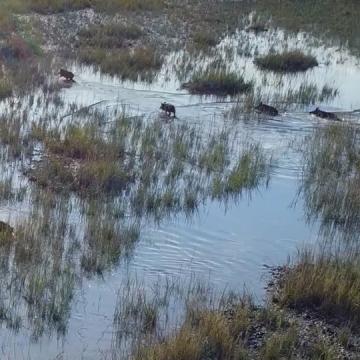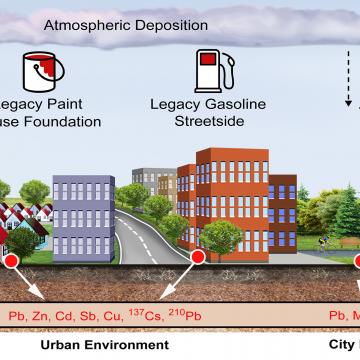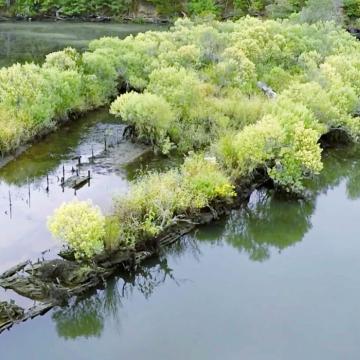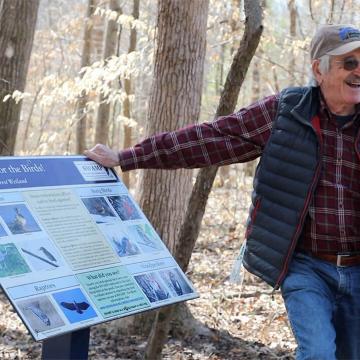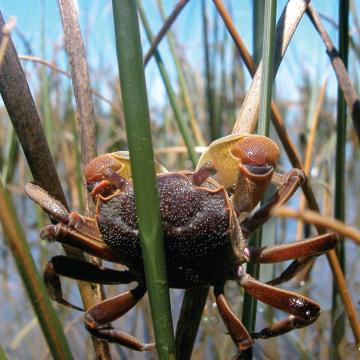-
NewsHuman activities such as marsh draining for agriculture and logging are increasingly eating away at saltwater and freshwater wetlands that cover only 1% of Earth’s surface but store more than 20% of all the climate-warming carbon dioxide absorbed by ecosystems worldwide. A new study published May 5 in Science by a team of Dutch, American and German scientists shows that it’s not too late to reverse the losses.
-
NewsCoastal marshes that have been invaded by feral hogs recover from disturbances up to three times slower than non-invaded marshes and are far less resilient to sea-level rise, extreme drought and other impacts of climate change.
-
NewsBy distinguishing between lead from modern sources and lead from pre-1970s vehicle exhaust fumes and leaded paint, the new test may be especially useful for assessing the hidden risks of legacy contamination.
-
NewsClouds of smoke and ash from wildfires that ravaged Australia in 2019 and 2020 triggered widespread algal blooms in the Southern Ocean thousands of miles downwind to the east, a new Duke University-led study by an international team of scientists finds.
-
NewsWarming waters along the Western Antarctic Peninsula have led to declines in the diversity and distribution of the region’s plankton population and its ability to absorb climate-warming carbon dioxide from the atmosphere.
-
NewsJoel Dunn (MEM’04) Helps Create America’s First National Marine Sanctuary in 20 Years
-
NewsRecent Duke grad Alexandra DiGiacomo (BS ’20) is using drones to better understand how rising seas, warming waters and rapid development are killing protective saltmarshes at our coast, and what can be done to reverse the losses.
-
NewsSixteen years after the restoration of Upper Sandy Creek began, hundreds of species, some rare, now call the once-heavily eroded and degraded stream home, and nitrogen pollution flowing off Duke’s campus into downstream waters has been slashed by 75%.
-
NewsWhen it comes to storing carbon during prolonged periods of drought and heat, wooded peatlands at low-latitudes have a three- to five-fold advantage over other peatlands. An ancient class of slow-growing fungi is the reason why.
-
NewsHarnessing the power of artificial intelligence, satellites and field observations, Duke researchers have produced new estimates of how much photosynthesis and primary production – key components in the global carbon cycle – are occurring in Earth’s oceans, and how these processes may be changing in response to a changing climate.
-
NewsThe proliferation of pits and ponds created in recent years by miners digging for small deposits of alluvial gold in Peru’s Amazon has dramatically altered the landscape and increased the risk of mercury exposure for indigenous communities and wildlife, a new study shows.
-
NewsSalt marshes, seagrass meadows and other coastal ecosystems are in rapid decline around the world. Restoring them is expensive and often unsuccessful. But an international team of researchers has discovered a way to sharply increase the odds of success by using biodegradable mats.
-
NewsHigh-intensity fires can destroy peat bogs and cause them to emit huge amounts of their stored carbon into the atmosphere as greenhouse gases, but a new Duke University study finds low-severity fires spark the opposite outcome.
-
NewsBy providing the first estimate of how much hydrogen is available to fuel microbial life in the sunless sub-seafloor crust beneath the Mid-Ocean Ridge (MOR), a new Duke University-led study sheds light on one of Earth’s least understood biospheres.
-
NewsThe Duke University Wetland Center is marking its 30th anniversary this year by kicking off the largest expansion of research, teaching and outreach programs in its history.

